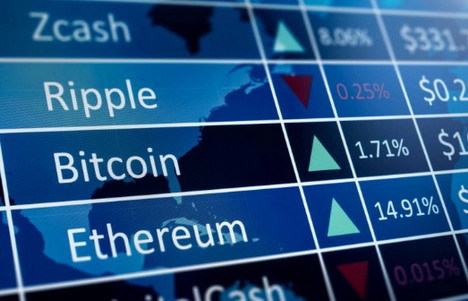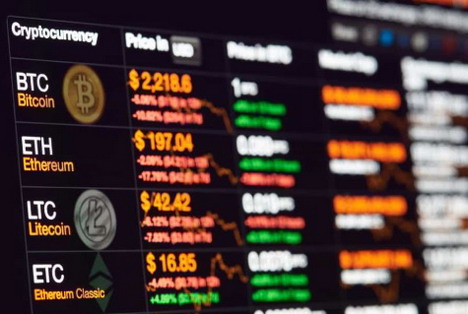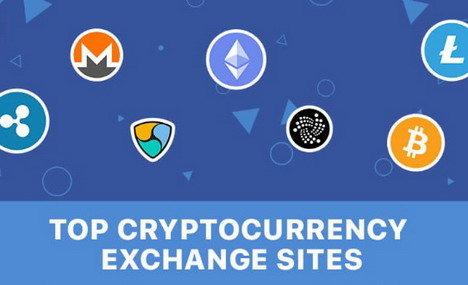Complete Guide: How to Choose the Right Cryptocurrency Exchange
Although the buzz around Bitcoin and altcoins has subsided a bit, the cryptocurrency community is growing at a rapid pace. Virtually all industries have started experimenting with cryptocurrency and there’s a rationale behind this trend.
Let’s take the gambling industry as an example. According to Katie Isaacson from KatieWager.com, who reviews casinos that allow you to pay with BTC, LTC, or BCH, cryptocurrency makes the industry more transparent and secure.Owing to their decentralized nature, blockchain-based tokens are free from any third-party control or supervision. Using them, gamblers transact directly with casino operators and do not reveal any of their sensitive data. The same can’t be said for credit card deals or bank transfers.
Whether you are going to use cryptocurrency for gambling or not, the first question that comes to your mind: Where to get the coins? It seems that the answer is obvious because there are dozens of different trading websites and even retail stores, which allow buying/selling cryptocurrencies.
Cryptocurrency Exchanges: Fundamentals
In a nutshell, cryptocurrency exchange is any website which supports trading coins for crypto or fiat money. Such platforms differ in terms of trading volume, available currency pairs, and rates. There are three types of cryptocurrency exchanges:
Trading Platforms
They support both buy and sell orders, and allowcustomersto trade cryptocurrency using special tools (APIs, margin trading, etc.). Usually, these platforms impose strict rules.
Brokers
These websites allow for crypto purchasing only. Usually, brokers sell coins for fiat money at a fixed rate, so they are good for newcomers.
Peer-to-Peer Networks
They function like traditional trading platforms, but connect users directly. P2P exchanges are more flexible as sellers set their own rules and prices.
The above-listed exchanges may supporteither crypto-to-cryptoor crypto-to-fiat pairs, or both.
Additionally, exchanges can be centralized and decentralized. Most platforms out there are centralized, as they store user data and money on central servers. They are convenient for newcomers, so we will focus on them further.
On the other hand, decentralized exchangesare similar to peer-to-peer networks, as they only match users’ buy/sell orders and do not store any of their money at all. Decentralized platforms are safer than centralized alternatives, but they are still too complicated and less functional.
Choosing the Best Trading Platform
While users have different trading goals and strategies, which will ultimately define the best exchange, there are some general criteria of quality and safety.
Trading Pairs
While newcomers will enjoy the top-rated cryptocurrencies like Bitcoin, Ethereum or XRP, the experienced traders will prefer a wider selection of coins.
Generally, crypto-to-fiat exchanges feature fewer pairs than crypto-to-crypto exchanges. You can check the pairs supported by a particular exchange on the platforms like CoinMarketCap. For instance, look at the coin lists of Binance or Kraken – the selection is huge.
Fees
Basically, all centralized exchanges impose fees on trading as these charges are the main source of profit for the websites. However, fees across exchanges differ significantly. You can also find marketplaces with zero fees but it’s a rare case, so try to find exchanges with flexible fee schedules to minimize your expenses. Most platforms will charge users depending on their trading volume.
Payment Methods
Probably, it’s the most important feature of crypto-to-fiat trading platform. The number of available payment options differs across exchanges, as well. The most popular are:
- Credit/debit cards
- Wire transfers
- E-wallets
- Cash
Remember that faster and simpler methods like credit cards imply extra fees and stricter verification requirements, as they come with a higher risk of fraud.
Pricing
It is not surprising that different exchanges have different cryptocurrency rates. The crypto market is volatile and websites respond to changes almost immediately. Brokers with fast transactions and a wide selection of payment options set higher prices, while trading platforms may have relatively low rates. We suggest using price comparison websites to find profitable exchange rates.
Security
Here’s another important feature to consider. Surely, decentralized exchanges are more secure,as they don’t require depositing funds to their built-in wallets, and support direct transactions between private wallets.
If you want to use such systems, look at peer-to-peer networks but remember to check reviews of the chosen seller to avoid scams and frauds. Finally, if you use traditional exchanges, consider some basic security measures:
- Cold Storages: Exchanges may keep users’ money in the wallets disconnected from the Internet for better safety.
- Two-Factor Authentication: These are additional security methods for confirming login or trading actionsvia SMS code or Google Authenticator.
- Reputation: This one is a secondary indicator of security, but be sure to consider it, as well. User feedback is the best acknowledgement of the exchange’s reliability.
Websites with strict KYC/AML requirements, which force you to verify identity, may look suspicious because they require your sensitive data. However, they are generally safer than their alternatives, as these are obligatory practices to prevent fraudulent trading.
Trading Volume
Large trading platforms are able to match buy and sell orders quickly, because they have a liquid marketplace. On the other hand, when using small exchanges with zero fees or less demanded coins on offer, youmight suffer from the long trading process, as the market is not active enough to fulfill the orders.
We suggest checking the trading volume rankings before choosing the exchange. Explore aggregators like already mentioned CoinMarketCap to reveal which websites are on the top right now.
A Few Trusted Exchanges to Check
In conclusion, let’s look at large and famous exchanges which you can start using right now:
- Coinbase: Broker with attractive cryptocurrencyrates and a beginner-friendly interface.
- Binance: The most well-known crypto-to-crypto platform with a lot of coin pairs.
- Kraken: Solid and reputable exchange, which supports both crypto and fiat deals.
- LocalBitcoins: Worldwide peer-to-peer network focused on BTC exclusively.
Remember that security matters most. Check users’ reviews and explore the terms and conditions of the chosen platform to reveal potential pitfalls. Then, compare prices, fees, volumes, and coin pairs, so that you know which exchange suits your demands best. Good luck!
Tags: bitcoin, cryptocurrency, digital currency













































